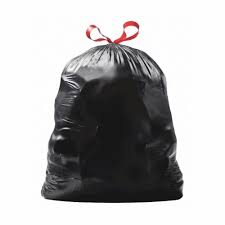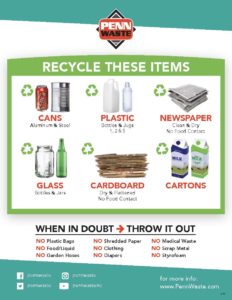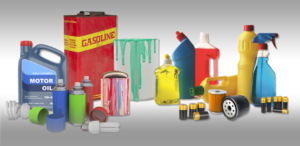Exploring the Differences between Trash, Recycling, and Hazardous Waste
PostedWhen it comes to waste disposal, there is a lot of confusion about what should be classified as trash, what should be recycled, and what needs to be disposed of as hazardous waste. It’s critical that you understand the differences between these types of waste in order to ensure proper disposal.
Trash
Trash can generally be defined as anything that cannot or should not be recycled or reused in any way. Generally, this includes food waste, non-recyclable packaging, single-use plastics and other items of trash. While many forms of trash are unable to be recycled due to their composition or size, it is important to note that all trash should still be disposed of properly as taking shortcuts can lead to safety issues such as truck fires and fires at our recycling facility.
Recycling
 Recycling is the process of taking materials such as cardboard, plastic, metal and glass that would otherwise end up in landfills or being incinerated, and transforming them into new items. In order for something to be classified as recyclable material it must meet certain guidelines such as being clean and dry, free from contaminants and on our list of recyclable items we accept at our recycling facility. When you place an item in your curbside recycling bin it will be collected, go through our sorting process and then be shipped out for further processing at a mill. This process helps separate materials so they can be treated accordingly and re-purposed into new products.
Recycling is the process of taking materials such as cardboard, plastic, metal and glass that would otherwise end up in landfills or being incinerated, and transforming them into new items. In order for something to be classified as recyclable material it must meet certain guidelines such as being clean and dry, free from contaminants and on our list of recyclable items we accept at our recycling facility. When you place an item in your curbside recycling bin it will be collected, go through our sorting process and then be shipped out for further processing at a mill. This process helps separate materials so they can be treated accordingly and re-purposed into new products.
Hazardous Waste Disposal
Hazardous waste refers to any kind of material that poses a threat either to humans or the environment if handled improperly; this includes certain types of chemicals, paint thinners, rechargeable batteries, and cleaning products among other things. These items need special handling when disposing of them in order to prevent any potential health and safety risks or environmental damage. 
Hazardous waste is not something that should ever be placed in your curbside trash or recycling bins. Hazardous waste needs to be dropped off at an approved solid waste authority facility that is specially equipped for taking these items.
By understanding the differences between each type of waste you can help protect our planet from potential harm while also ensuring responsible disposal practices are followed wherever possible.
Continue Reading